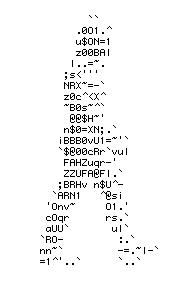Gesetzliche Kommentar-Freiheit?
Aus dem Newsletter von http://www.onlinejournalism.com. ....dies dürfte einigen Verlegern die Schweissperlen aurf die Stirn treiben,... :-)
From Slashdot.org: The Council of Europe takes a decision today on compulsory publication of counter-replies to stories run by news sites, blogging sites and moderated mailing lists.
The council's voting members include 45 European countries and non-voting members include the United States, Canada, Japan and Mexico. The new ruling may require all forms of online news communication to respect the "right of reply" for organizations and individuals that have been criticized in their publication.
CNET news quotes Pall Thorhallsson, the council's media division as saying, "Some online publications run by nonprofessionals can be very influential and therefore damaging to the reputation of other people." While the Council of Europe is influential its rulings do not always become laws.
Hier einige der Vorschläge:
• "The reply should be made publicly available in a prominent place for a period of time (that) is at least equal to the period of time during which the contested information was publicly available, but, in any case, no less than for 24 hours."
• Hyperlinking to a reply is acceptable. "It may be considered sufficient to publish (the reply) or make available a link to it" from the spot of the original mention.
• "So long as the contested information is available online, the reply should be attached to it, for example through a clearly visible link."
• Long replies are fine. "There should be flexibility regarding the length of the reply, since there are (fewer) capacity limits for content than (there are) in off-line media."
slashdot.org : http://slashdot.org/
The Council of Europe: http://www.coe.int/portalT.asp
CNET news: Why Europe still doesn't get the Internet (June 16, 2003)
From Slashdot.org: The Council of Europe takes a decision today on compulsory publication of counter-replies to stories run by news sites, blogging sites and moderated mailing lists.
The council's voting members include 45 European countries and non-voting members include the United States, Canada, Japan and Mexico. The new ruling may require all forms of online news communication to respect the "right of reply" for organizations and individuals that have been criticized in their publication.
CNET news quotes Pall Thorhallsson, the council's media division as saying, "Some online publications run by nonprofessionals can be very influential and therefore damaging to the reputation of other people." While the Council of Europe is influential its rulings do not always become laws.
Hier einige der Vorschläge:
• "The reply should be made publicly available in a prominent place for a period of time (that) is at least equal to the period of time during which the contested information was publicly available, but, in any case, no less than for 24 hours."
• Hyperlinking to a reply is acceptable. "It may be considered sufficient to publish (the reply) or make available a link to it" from the spot of the original mention.
• "So long as the contested information is available online, the reply should be attached to it, for example through a clearly visible link."
• Long replies are fine. "There should be flexibility regarding the length of the reply, since there are (fewer) capacity limits for content than (there are) in off-line media."
slashdot.org : http://slashdot.org/
The Council of Europe: http://www.coe.int/portalT.asp
CNET news: Why Europe still doesn't get the Internet (June 16, 2003)
Cyberwriter - 17. Jun, 11:00 - online Journalism
0 Kommentare - Kommentar verfassen - 0 Trackbacks





















Trackback URL:
https://cyberwriter.twoday.net/STORIES/36988/modTrackback